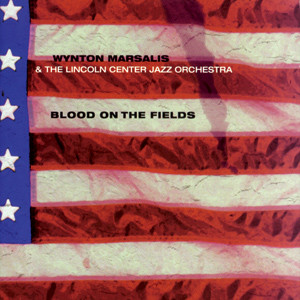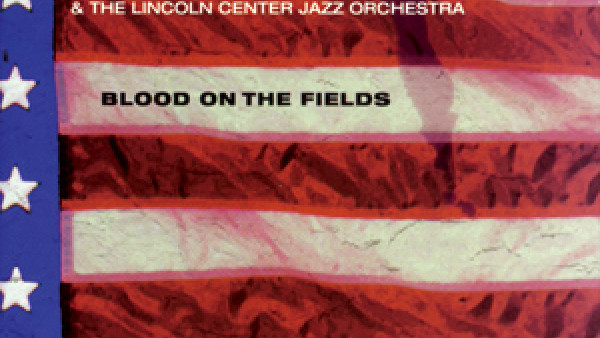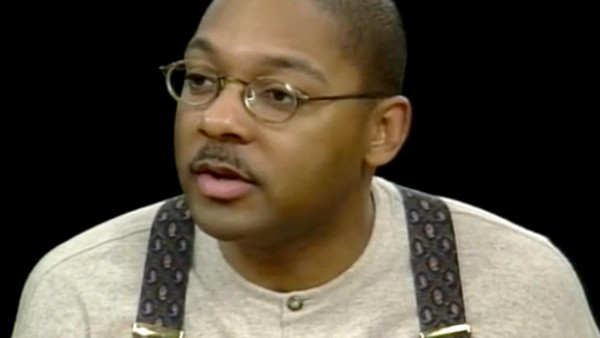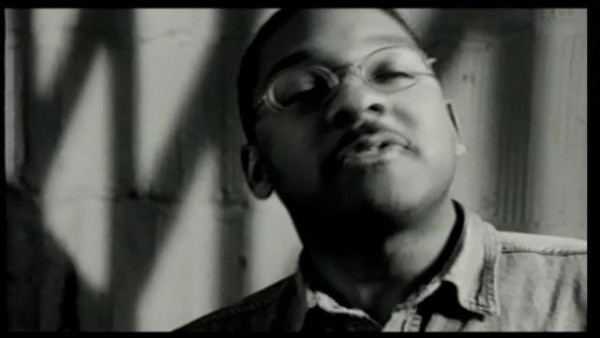Marsalis’ Gamble
With a cast of roughly two dozen musicians, a running time of nearly three hours and a forthcoming recording that will fill a three-CD boxed set, it is the single biggest project of Wynton Marsalis’ career to date.
That a man just 35 should attempt something so immense as “Blood on the Fields”—a sprawling oratorio contemplating the horrors of American slavery—would be surprising coming from anyone, perhaps, but Marsalis himself. This is a young musician, after all, whose immense discography already includes such major works as “Majesty of the Blues” (1989), a haunting tone-poem that redefines historic blues expression in bracingly modern terms; “Soul Gestures in Southern Blue” (1991), an extended, three-CD suite in which Marsalis explores the Southern origins of his music; and “In This House/On This Morning” (1994), a stunning evocation of a gospel church service, as expressed in jazz instrumental terms.
Each of the those pieces marked significant advances in Marsalis’ evolution as composer, yet none saw the artist working on quite so large a canvas as “Blood on the Fields.” Conceived for jazz orchestra, trumpet soloist and vocal trio (Cassandra Wilson, Jon Hendricks and Miles Griffith), “Blood” received a single performance as a work-in-progress at Lincoln Center in New York in 1994 and has been reworked and refined by the composer since then.
A few days ago, Marsalis and friends launched their international tour of the reconstituted work in Connecticut, and when Marsalis’ small army of musicians invades Orchestra Hall on Feb. 14, Chicagoans will be able to judge for themselves the results of Marsalis’ gamble. And a gamble it is, considering the sheer number of musicians involved, the high cost of sending them around the world and the artistic risk of casting them in a work of such huge musical proportions.
“My first impression of the piece is that it’s a very ambitious thing for a man of Wynton’s tender years to take up,” says Hendricks. “And what’s an oratorio? I mean, who does anything in the oratorio form anymore since George Frideric Handel?
“I did a rock version of Handel’s `Messiah’ oratorio in London, but that’s the last time I ever heard the word.”
Strictly speaking, “Blood on the Fields” isn’t precisely an oratorio (though it’s billed as such), since it doesn’t deal explicitly with a sacred or religious story, as do, say, Handel’s “Messiah” and “Judas Maccabeus,” Bach’s “Christmas Oratorio” and Haydn’s greatest composition, “The Creation.”
Yet an advanced audio tape of “Blood on the Fields”—which traces the sorrowful journey of two slaves from Africa to America, and the hellish life that follows—suggests at least an undertone of faith and spirituality. Certainly a faith in the human spirit sustains Leona and Jesse (played by Wilson and Griffith), giving what might have become an unremittingly dark and mournful composition an unmistakable ray of hope and optimism.
As always with Marsalis, there’s room to dream even in the most dire circumstances.
“Well that’s just what I believe in, coming out of the whole 20th Century fascination with agony,” says the composer.
“Think of T.S. Eliot’s `The Waste Land,’ just the whole question of anguish—the idea that everything is falling apart, that the center cannot hold.
“That idea has been out here for a long time, it’s received great acclaim, but it has never received a great following.
“I think that most people want to be uplifted, but we don’t want to be uplifted by putting blinder’s on. We want to say, `OK, yeah, it is messed up out here, help us put that tragedy in a context.’
“We want to be told, `Yeah, we’re human beings, and we can survive, and we are surviving, and we will continue to survive.’ “
Or, as one of the more haunting, recurring lines in the “Blood on the Fields” text reads, “I think you better ride this wave on out.”
This phrase, and all the others, was written by Marsalis, whose libretto evokes his similarly poetic text for “Sweet Swing Blues on the Road” (W.W. Norton & Company, 1994). That book, Marsalis’ first, featured the artist’s musings on the jazz life, accompanied by Frank Stewart’s photographs. And like “Sweet Swing Blues,” the “Blood on the Fields” text carries a music and a rhythm all its own.
Consider, for example, this remarkable passage from Leona’s first big aria, “Move Over,” in which she—trying to sleep in the hot and horrible belly of a slave ship—all but hallucinates on her fate.
Stop it. Stop it. Where did my little ones go!
I’m down below, Demons are riding the wind, I, I can’t, oh, no.
Momma, Mother, Mother.
Rocking tomb. Blood wet womb.
Many cry, O brown doom, beg to do die and do
Where are we, am I? are we? am we
The critical question on this writing, and the vivid music that accompanies it—from dirge-like work songs to joyful blues to extended jazz arias—is whether “Blood on the Fields” coheres as a whole in performance. Writing in extended forms long has been a central challenge in jazz, and Marsalis has addressed it most persuasively in “In This House” and “Soul Gestures in Southern Blue.”
“Blood on the Fields,” however, is more daring, in that it attempts to tell a tragic story familiar from American history in deeply personal terms.
If the piece succeeds, Marsalis surely will have accomplished something that precious few jazz composers have achieved. Certainly the “Sacred Concerts” of Duke Ellington, the Masses of Dave Brubeck and Leonard Bernstein, the opera “Treemonisha” by Scott Joplin and even extended, concerto-like works by Louis Moreau Gottschalk and George Gershwin all succeeded to varying degrees. As in these historic pieces, Marsalis is attempting to use jazz techniques to create statements on the same scale as the most imposing works of European classical music.
“There’s a lot of Duke Ellington in this, or at least the influence of Ellington,” says singer Wilson, citing the composer whose immense oeuvre clearly has influenced and inspired Marsalis the most.
With “Blood on the Fields,” Marsalis is picking up where Ellington left off late in life, with his “Sacred Concerts.” But by specifically taking on the tragic history of the passage of Africans to America, Marsalis is making a more explicitly political statement in his music than Ellington typically did in his.
And though such issues have not been lacking in jazz composition and performance over the past few decades (consider the work of various bands belonging to the Association for the Advancement of Creative Musicians), Marsalis’ project is bigger, bolder and more visible than its predecessors.
“Blood on the Fields,” then, stands to make history not only for Marsalis but also for the art of jazz. We’ll have to wait until the performance itself, however, to find out if it does.
by Howard Reich
Source: Chicago Tribune





